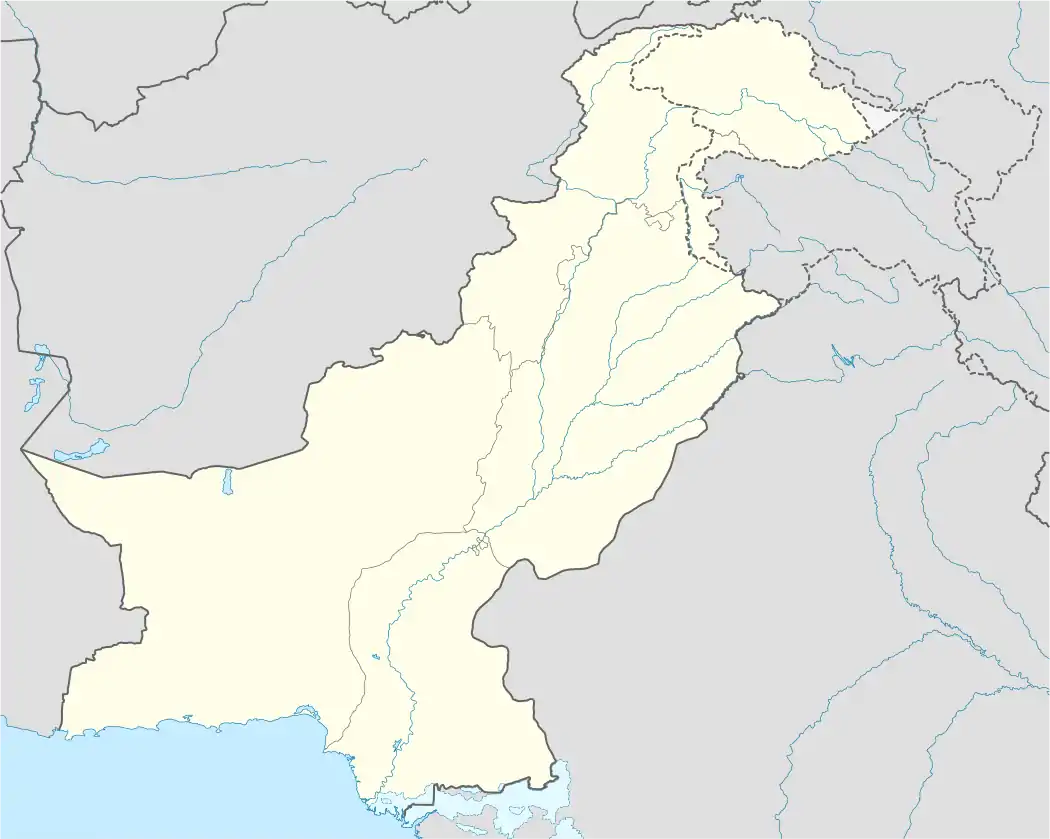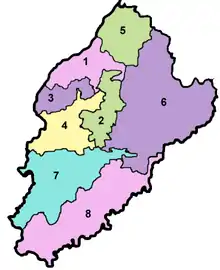Nara Dada
Nara Dada (Urdu: ناراڈاڈا) (also known as 228 GB (Gugera Branch) is a village in Faisalabad District, Punjab, Pakistan on the Gojra - Samundari road.[1]
Nara Dada | |
|---|---|
 Nara Dada | |
| Coordinates: 31.06°N 72.53°E | |
| Country | |
| Province | Punjab |
| District | Faisalabad |
| Time zone | UTC+5 (PST) |
The exact history is not known, but this village existed before the independence of Pakistan. Most of the inhabitants came to live there following migration from the villages 'Nara' and 'Dada', in the Indian district of Hushiarpur — the village's name is a combination of these names. This is the village of Rajputs of 'Naru' and 'Ambala' caste.
There are four mosques in Naradada. Jamia Masjid situated in the middle of the village, rebuilt in 2018. Most of the inhabitants are Muslim Rajputs who fled from anti-Muslim pogroms in India. There is also a small number of Christians living there.
Nara Dada is located near a road and acts as a hub to villages in the region. The land surrounding the village is not very fertile, and crops like wheat, sugarcane, and maize is grown their.
There are three schools in Nara Dada (one for boys and two for girls) and many private schools which provides quality education. Also, there is a utility store in Naradada. The people of Nara Dada take great pride in the level of education achieved — students from the village have moved on to high functions in large companies because of their education. However, there is a notable difference of quality between the boys and girls schools — the girl's high school is said to have no science teacher and is less supported by staff.
Other facilities in the town include a government hospital of 10 beds and a telephone exchange. Compared to neighboring villages, Nara Dada is advanced.
References
Haggi Muhammad Akram Rana Akmal khan Advocate Rana Muhammad Usman Khan

